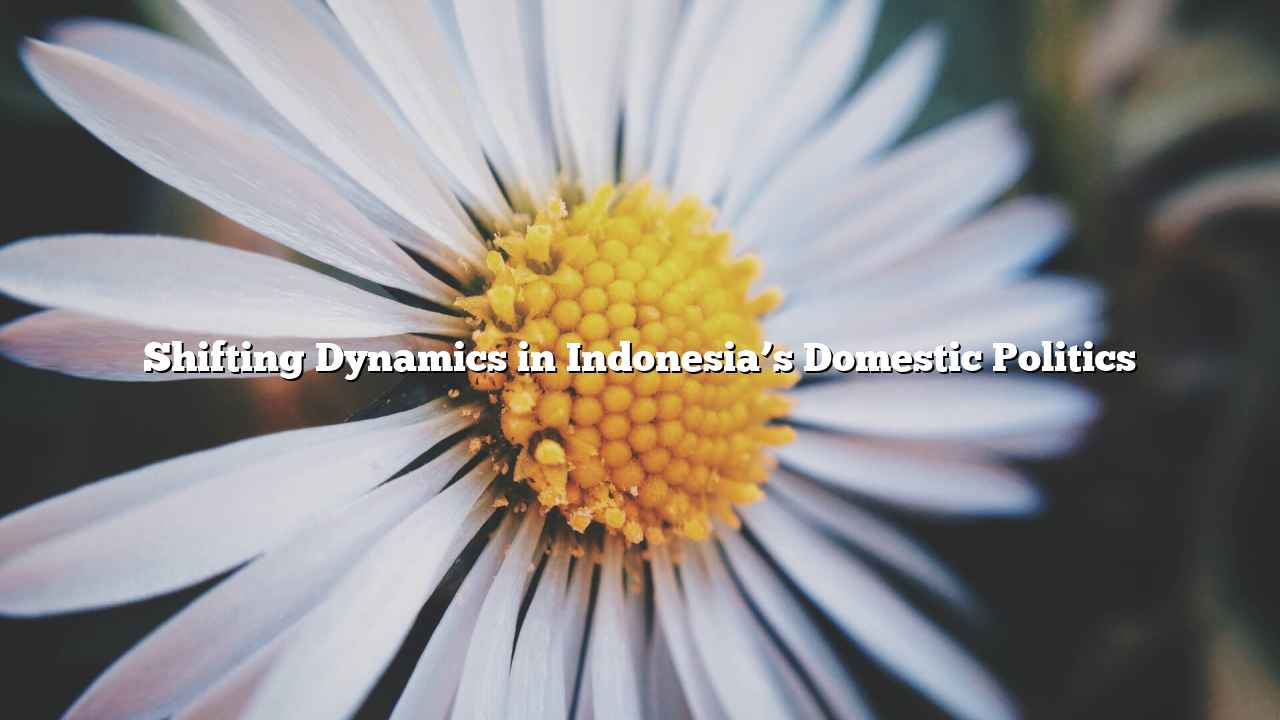Indonesia’s political landscape is undergoing notable shifts as the nation approaches another pivotal electoral cycle. With its vast and diverse population, the country’s domestic politics reflect a complex interplay of regional interests, national policy priorities, and the ongoing push for democratic consolidation. As political parties and candidates position themselves ahead of the next general election, the debates surrounding governance, economic development, and social stability have intensified.
One of the central themes dominating the political Pattimura4d discourse is economic inequality. Despite steady GDP growth over the past decade, the benefits have not been evenly distributed across regions. Urban centers like Jakarta, Surabaya, and Bandung have seen rapid modernization, while many rural areas remain underdeveloped. This disparity fuels political rhetoric, as parties promise targeted infrastructure projects, increased agricultural support, and decentralization measures to empower local governments.
Corruption remains another pressing concern in Indonesia’s domestic politics. The Corruption Eradication Commission (KPK) has maintained a prominent role in uncovering and prosecuting high-profile cases. However, recent legislative changes have sparked public debates over the institution’s independence. Critics argue that weakening anti-corruption measures could undermine public trust in government institutions, while supporters claim that reforms are necessary to ensure due process and avoid politicization. This tension highlights the delicate balance between accountability and political stability.
Identity politics continues to play a significant role in shaping electoral strategies. Religious and ethnic affiliations often influence voting patterns, especially in provinces with distinct cultural identities. While Indonesia’s constitution emphasizes unity in diversity, political actors sometimes exploit identity issues to mobilize support. This approach, however, risks deepening social divides and complicating efforts to maintain national cohesion.
On the policy front, environmental concerns are gaining traction as a political issue. Deforestation, pollution, and climate change impact both livelihoods and public health, particularly in rural communities dependent on agriculture and natural resources. Several political parties have included environmental protection in their platforms, proposing stricter regulations on palm oil production, investment in renewable energy, and enhanced disaster preparedness measures. These initiatives reflect a growing awareness that environmental sustainability is not only an ecological necessity but also a key factor in economic resilience.
The role of youth in domestic politics is also becoming increasingly significant. Indonesia’s large young population is more digitally connected than ever before, shaping political narratives through social media platforms. This demographic demands greater transparency, innovation in governance, and opportunities for entrepreneurship. Political parties are adapting their outreach strategies, employing digital campaigns and interactive policy discussions to engage younger voters, whose preferences could prove decisive in close contests.
Another important trend is the gradual shift toward coalition-building among political parties. Given Indonesia’s multi-party system, forming alliances is often essential for securing a legislative majority. These coalitions, however, are not always based on shared ideology but rather on pragmatic power-sharing arrangements. While such alliances can foster stability, they may also dilute policy commitments and lead to compromises that slow reform efforts.
As the next election approaches, the government faces the challenge of balancing economic recovery from global market fluctuations with domestic demands for equity and fairness. Ensuring free and fair elections, protecting democratic institutions, and addressing socio-economic disparities will remain at the heart of political debate. The outcome will not only determine the immediate direction of Indonesia’s governance but also signal the resilience of its democratic framework in navigating the complexities of a diverse and dynamic society.
Indonesia’s domestic politics, with all its challenges and opportunities, stands at a crossroads. The decisions made in the coming years will shape the nation’s future trajectory, influencing not only internal affairs but also its position on the global stage. As political actors maneuver for influence, the public’s role in holding leaders accountable will be more important than ever. The health of Indonesia’s democracy will ultimately depend on the ability of its citizens and leaders to engage in constructive dialogue, embrace inclusivity, and prioritize the collective good over short-term political gain.
